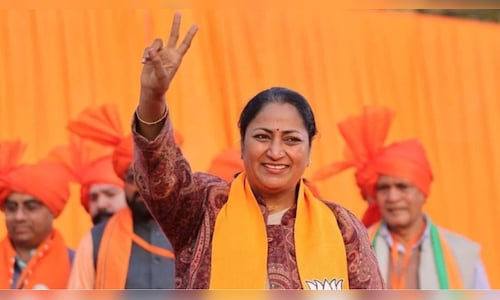The newly sworn-in Chief Minister, Rekha Gupta, has pledged to implement the party’s manifesto promises, including a ₹2,500 monthly allowance for women. However, experts caution that such measures could significantly strain Delhi’s already precarious finances.
AK Bhattacharya, Editorial Director of Business Standard, has raised red flags about the economic impact of these policies. “Delhi government was one of the richest in the country, but for the last three years, it has been running a deficit,” he pointed out. “With this new promise of ₹2,500 per adult woman, the total expenditure could shoot up to ₹19,500 crore annually, which is nearly 25% of Delhi’s current ₹76,000 crore budget.”
Given that Delhi, as a union territory, does not have access to Finance Commission devolution grants, Bhattacharya questions how the BJP-led government will manage this massive expenditure. “Unless the 16th Finance Commission alters the rules, I don’t see how the government will find this extra ₹19,500 crore,” he added.
The impact, Bhattacharya warns, could be severe, potentially undermining Delhi’s traditionally strong investments in education and healthcare. “The government currently allocates 24% of its budget to education and 14% to health—both higher than the national average. If a significant chunk of funds is diverted to this scheme, it’s uncertain where the money for these critical sectors will come from.”
Rekha Gupta’s elevation as Delhi’s Chief Minister has come as a surprise to many, in line with the BJP’s strategy of unexpected leadership picks. Sandeep Shastri, National Coordinator of Lokniti Network, noted that her background as a long-time BJP worker, with roots in the party’s student wing ABVP, positions her well within the ideological framework of the party. “Though a first-time MLA, she has strong ties with the party’s organisational structure, which will aid her tenure,” Shastri said.
Senior journalist Sanjeev Srivastava also highlighted the political calculations behind Gupta’s selection. He noted that with no clear BJP frontrunner in Delhi, the party might have opted for Gupta to address the gender gap in its leadership. “If you look at BJP’s CM faces—Thakur in UP, OBC leaders in Haryana, Brahmins in Maharashtra and Rajasthan—Delhi was a peculiar case with no natural successor. A woman leader was a missing link in the BJP’s galaxy of chief ministers,” he observed.
Gupta has also committed to executing other key BJP manifesto promises, including the Ayushman Bharat scheme, Yamuna river cleanup, and large-scale sanitation efforts. However, each of these requires substantial financial backing, adding to the pressure on Delhi’s budget.
Watch the video for more


